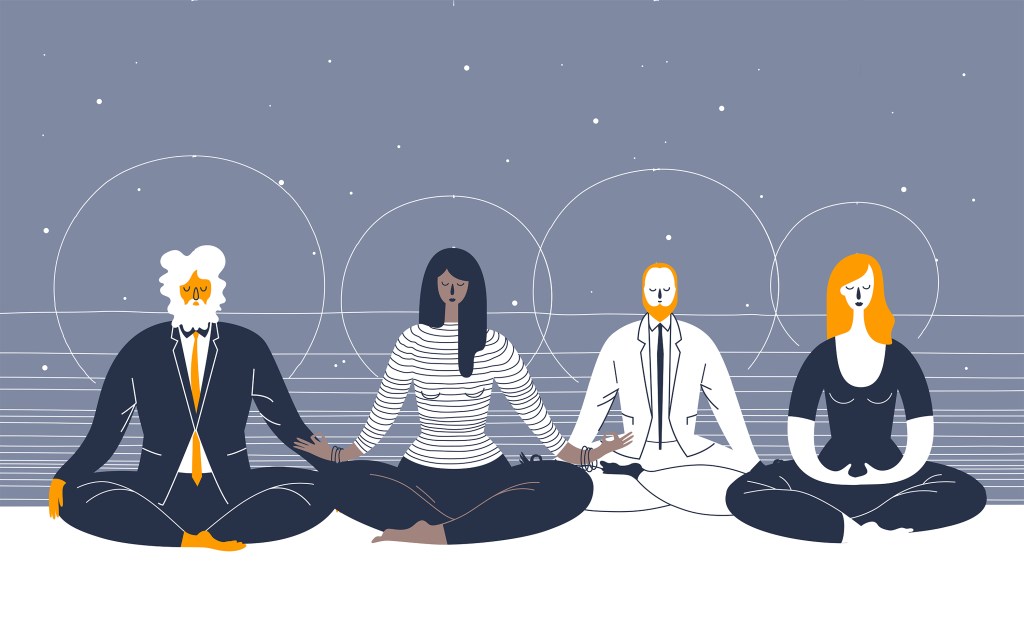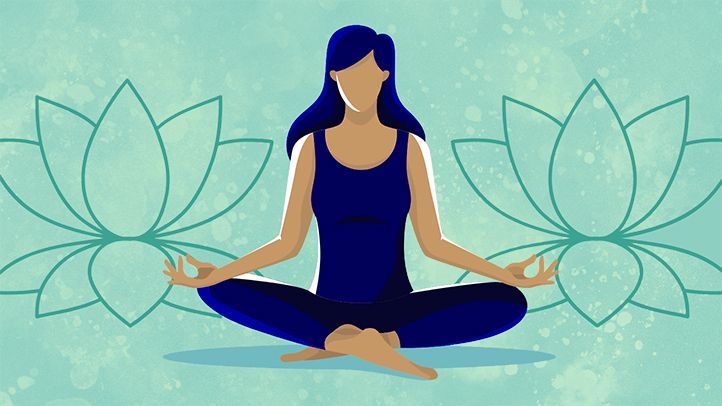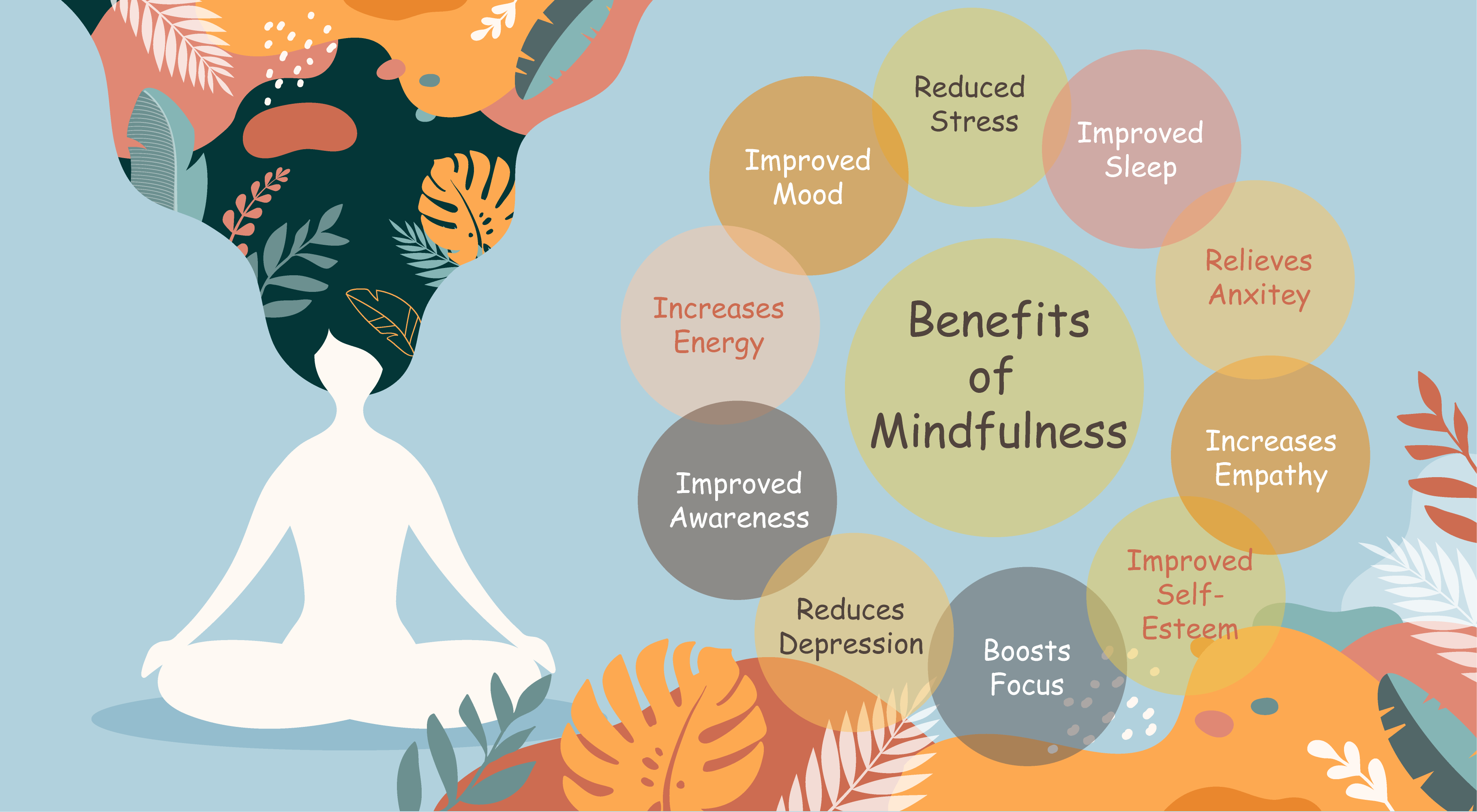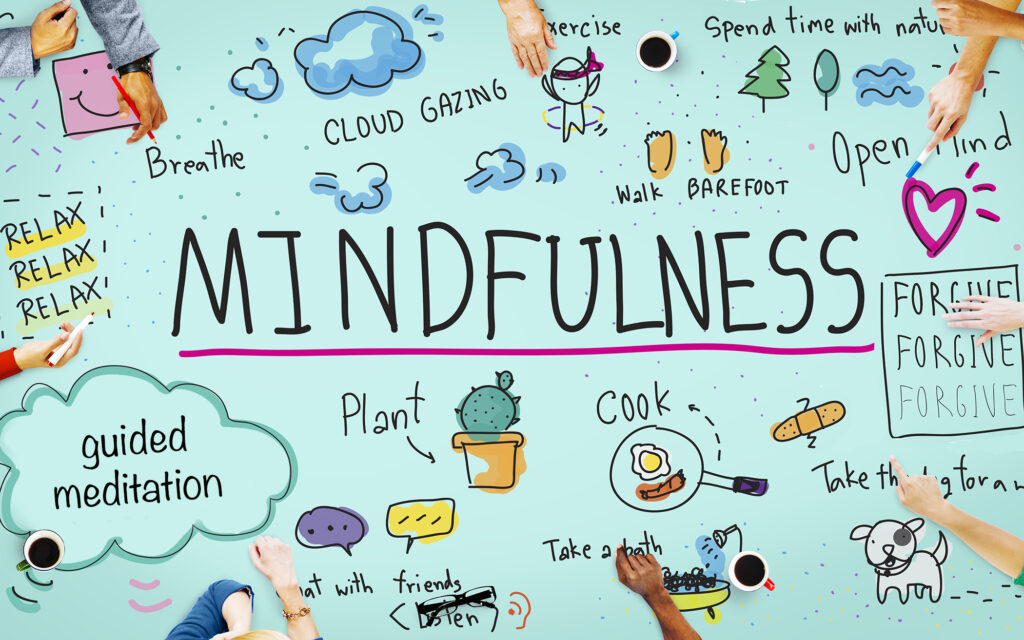Do you have a hard time coming up with new ideas? Do you feel stuck in your current position and want to find a way out? Mindfulness can be the key to unlocking creativity. In this article, we will discuss different mindfulness practices that will help free your mind from constraints and allow for more innovative thinking.
Contents
What is Mindfulness?

This is a question that many people often ask themselves. Mindfulness is the state of being aware of your surroundings and yourself, as well as everything going on inside you at all times. This might sound overwhelming but with some practice, it can become quite easy to do. In this blog post, we will provide ways for you to be mindful so as to think outside of the box.
What is Meditation?

It is an activity that focuses on training the mind for greater focus, calmness, and awareness.
Meditation may come in many forms – from focused activities like yoga or tai chi to more open activities such as qi gong or walking meditation. The key to mindfulness meditation is focusing your attention on something specific (like your breath) while trying to ignore other thoughts and distractions.
The Basics of Mindfulness Practice
Mindfulness helps us put some space between ourselves and our reactions, breaking down our conditioned responses. Here’s how to tune into mindfulness throughout the day:
- Set aside some time. You can be mindful without a meditation bench or anything special. You just need to set aside some time and space.
- Observe the present moment as it is. The goal of mindfulness is to pay attention and not judge what you see. It’s hard to do but you can try.
- When we notice judgments come up, it can be helpful to just note them and let them go.
- To practice it, you should focus on the present moment. Our minds often think of what will happen next. That’s why it is the practice of focusing on now.
- Your mind might wander. That is okay. It might be hard to bring it back, but you can do so by being nice to yourself.
That’s the way that people do it. It’s often been said that it’s simple, but not always easy. The work is to keep doing the practice. The results will accumulate.
Colorful Mindfulness Tips to Help You Think Outside of the Box
- Start by taking a few deep breaths every morning before you get out of bed and focus on whatever sensations you feel in that moment.
- Have your notebook or notepad ready when you need it, but don’t write down every single thought that comes to mind. Try not to censor yourself at all.
- It can be beneficial for you to try mindfulness exercises or meditation each day because it will help your brain become more flexible and less rigid.
- Before, during, and after an activity where you need both hands (e.g., driving), try using only one hand to do the task and focus on your breathing.
- Pay attention when you’re cooking, cleaning, or just hanging out in the same room as someone else is doing a repetitive activity. Don’t let yourself get distracted: stay focused on what they are saying and how it makes them feel. Try to see the world through their eyes.
It can be easy to think that being mindful means going out of your way to focus all the time, but mindfulness isn’t just about focusing intently. It is also about letting go and trying not to label things as good or bad.
- Give every person you see the benefit of the doubt and don’t label them as weird, stupid, or annoying.
- When you finish a task that is repetitive (e.g., cleaning), try not to label it as “bad” just because it makes your life easier in some way. Just let the thought go instead.
- Every time you find yourself thinking “I should have” or “I can’t,” try to catch it and stop the thought. Just let your mind be.
- Treat each new day as an opportunity for growth instead of just a regular day that happens over and over again.
Why Practice Mindfulness?
Mindfulness is good for your mental health. According to the National Institute of Mental Health, up to 40 million Americans suffer from anxiety disorders such as PTSD and panic attacks. It has been proven that mindfulness helps reduce stress levels affecting people’s ability to cope with these issues.
Benefits of Mindfulness

There can be numerous benefits of mindfulness, some of which are:
- Mindfulness is good for our bodies: This is a study about how after eight weeks of training with mindfulness meditation, our immune system is stronger. It has more power to fight off illness. Practicing mindfulness may also improve sleep quality.
- Mindfulness is good for our minds: Some studies have found that mindfulness increases positive emotions like happiness and reduces negative emotions like stress. One study even suggests that it may be as good as antidepressants for fighting depression and preventing relapse.
- Mindfulness changes our brains: Research has found that this will make your brain work better. It makes the gray matter in your brain be denser.
- Mindfulness helps us focus: Studies suggest that mindfulness can help us tune out distractions and improve our memory, attention skills, and decision-making.
- Mindfulness fosters compassion and altruism: Research has shown that mindfulness training makes people more likely to help others in need. It also increases activity in neural networks that are involved in understanding the suffering of others. Evidence suggests that it might also increase self-compassion.
- Mindfulness enhances relationships: Research suggests that mindfulness training makes couples more satisfied with their relationship. It also makes people feel more optimistic and relaxed, and it makes them feel closer to one another. In addition, mindful couples may recover from conflicts quickly.
- Mindfulness affects the way we see ourselves: More mindful people are better able to make sense of the world. They are more in line with their values and have a healthier body image, self-esteem, and resilience to negative feedback.
- Mindfulness makes us more resilient: Some evidence shows that mindfulness training might help veterans with post-traumatic stress disorder, police officers, women who suffered child abuse, and caregivers.
- Mindfulness can help combat bias: Even a short introduction to mindfulness training can reduce implicit bias. This is because it reduces cognitive biases that cause prejudice.
- Mindfulness is good for business: Mindfulness training might help leaders become more confident, improve creativity, stop multitasking, and increase client satisfaction.
- Mindfulness is good for parents and parents-to-be: Studying suggests that mindful parenting may reduce pregnancy-related anxiety, stress, and depression. It might even reduce the risk of premature births or developmental issues in babies. Parents who practice mindful parenting report less stress, more positive parenting practices, and better relationships with their kids; their kids are less susceptible to depression and anxiety, have better social skills.
- Mindfulness may be beneficial to teens: Practicing it can help teens feel better. They will be less stressed, more compassionate, and happier. When they go to college it might help them not drink too much alcohol.
- Mindfulness helps schools: In the classroom, people learn to practice mindfulness. This helps them to be calmer and happier. It also helps people at school behave better. It makes their minds stronger and they can pay attention more. Teachers who teach mindfulness have less stress in their lives, too!
Conclusion
In this blog post, we’ve explored how mindfulness can affect your mental and physical well-being. The end goal of meditation is to become more focused on the present moment by clearing away distracting thoughts from the past or future. It seems that with a little effort in taking time for yourself each day, you may be able to reap great benefits in both your work life and home life without trying too hard! If you want to learn how it might make a difference in your life, feel free to explore our website for resources about starting a meditation practice at home or getting started if it’s been a while since you’ve meditated before. What are some ways that you have incorporated it into your daily routine?
If you are looking for affordable Online Counseling MantraCare can help: Book a trial therapy session


